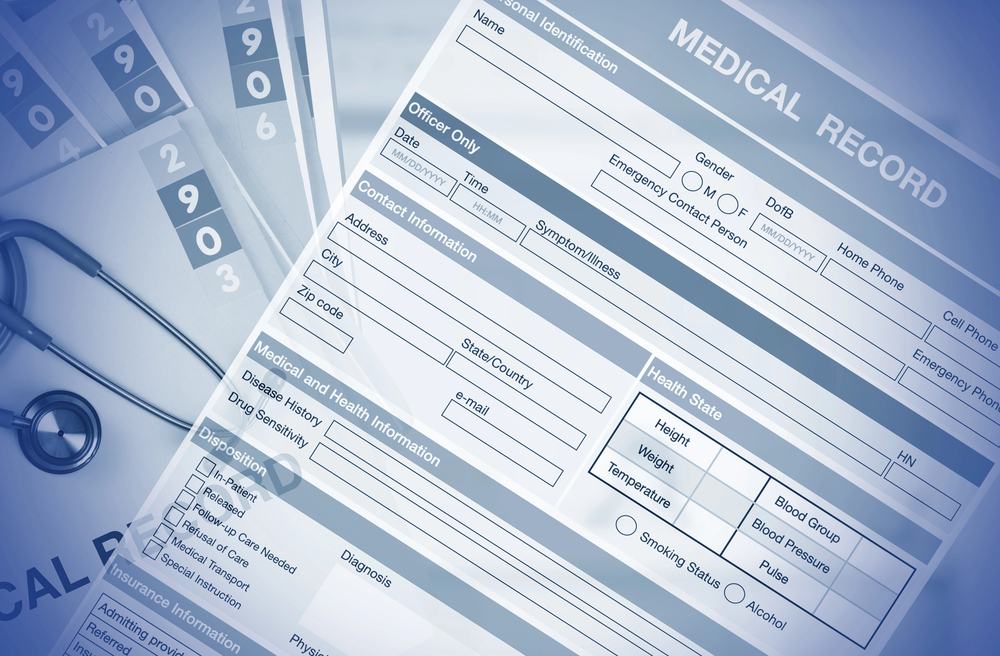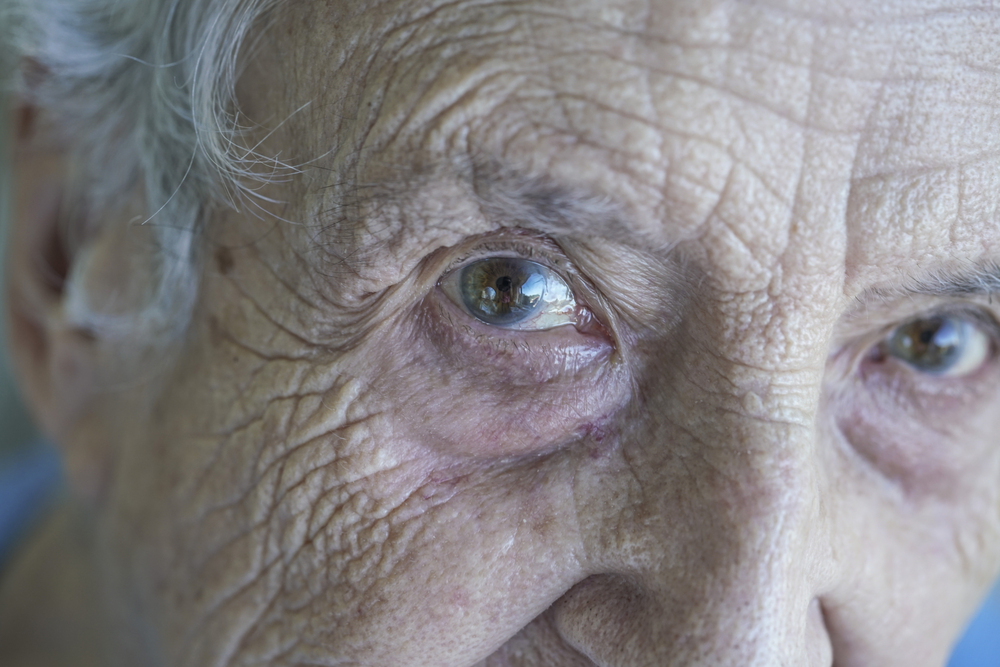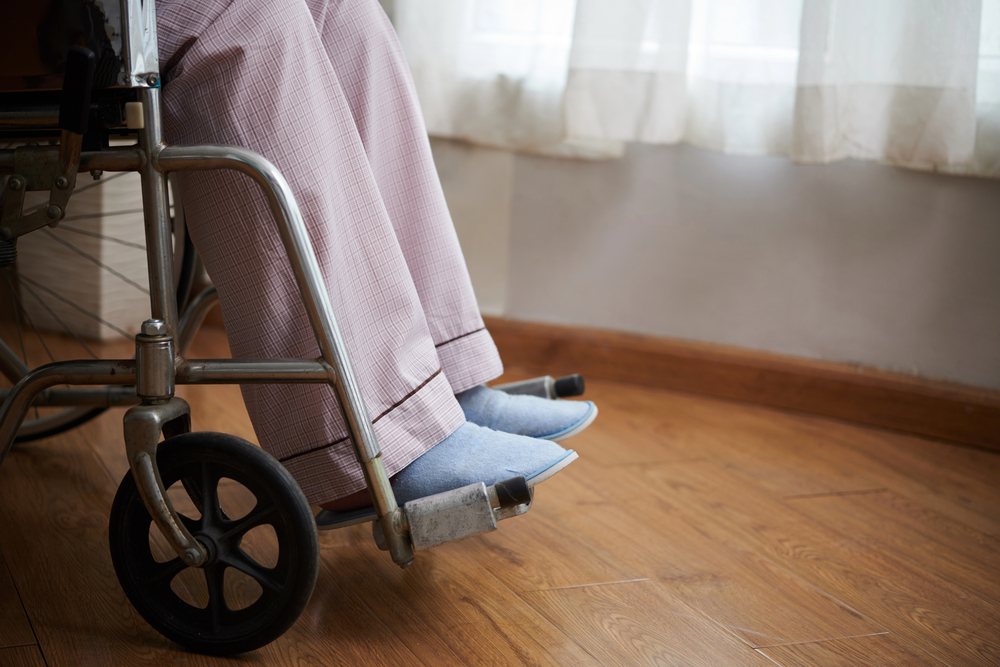The Nursing Home Law Center is committed to providing the legal resources necessary to hold negligent facilities accountable.
Bloomington Nursing Home Abuse Lawyer
Compensation for Family Members and Victims of Nursing Home Neglect and Abuse

Licensed in Illinois
If your loved one has suffered abuse or neglect in a nursing home, an experienced Bloomington nursing home abuse lawyer at Nursing Home Law Center can help your family seek justice. We provide legal representation for victims of nursing home abuse, including cases involving physical harm, emotional distress, sexual abuse, and nursing home neglect throughout central Illinois.
Our team is dedicated to representing nursing home residents and holding facilities accountable when they fail to provide proper care or allow abuse and neglect to occur. Whether your case involves medication errors, fall-related injuries, or wrongful death, we’re here to help you protect your elderly loved one’s rights.
Contact us for a free consultation and let our team evaluate your legal options.
We can help you file claims against facilities such as:
- Goldwater Care Bloomington
- Arcadia Care Bloomington
- Bloomington Rehabilitation & HCC
- Westminster Village
- Luther Oaks
Settlements Recovered by Our Law Firm
- $2,250,000 settlement for a resident who suffered fatal complications after repeated medication errors and delayed medical care at a skilled nursing facility.
- $1,400,000 awarded to the family of a woman who died from a preventable fall due to lack of supervision and inadequate training of staff at a Bloomington nursing home.
- $975,000 recovered in a nursing home abuse case involving sexual assault over a vulnerable resident by a staff member with a known history of misconduct.

Legal Rights of Nursing Home Residents in Bloomington, IL
Residents in Bloomington nursing homes are protected under both federal and state laws that guarantee their safety, dignity, and well-being. The Illinois Nursing Home Care Act (210 ILCS 45/) is the primary state statute that outlines the legal rights of nursing home residents.
This law ensures that residents receive adequate care and live in a safe environment, free from abuse, neglect, and exploitation. Under this act, residents have the right to:
- Be treated with respect and dignity
- Receive appropriate medical care and personal care services
- Be protected from physical abuse, sexual abuse, mental abuse, and financial exploitation
- Participate in decisions about their care and treatment
- Refuse treatment if they choose
- Live in clean, safe, and properly staffed facilities
- File complaints without fear of retaliation
- Have access to their medical records and financial information
Additionally, the Federal Nursing Home Reform Act (part of the Omnibus Budget Reconciliation Act of 1987) establishes similar rights on a national level, including the right to be free from unnecessary restraints and the right to report abuse or neglect.
If you believe these rights have been violated, you can report abuse through the Illinois Department of Public Health (IDPH) and consult a nursing home abuse attorney to help pursue justice and hold negligent parties accountable.
Why You Need a Bloomington Nursing Home Abuse Attorney
If your loved one has suffered harm in a nursing home, having a dedicated personal injury attorney on your side is critical. Abuse and neglect cases are often difficult to detect and prove. Nursing facilities may deny wrongdoing, hide evidence, or claim the injuries were accidental.
An experienced nursing home abuse attorney can help you gather evidence, navigate complex laws like the Illinois Nursing Home Care Act, and fight for full compensation for medical bills, emotional distress, and serious injuries.
A lawyer can:
- Investigate the abuse and identify all responsible parties
- Preserve evidence before it disappears
- Deal with the facility’s insurance and legal team
- File a lawsuit within the statute of limitations
- Represent your family in court if necessary
Working with a skilled personal injury lawyer gives your case the attention it deserves. Most law firms, including ours, offer a free consultation , so there’s no risk in learning your options.

Common Signs of Elder Abuse and Neglect in Nursing Facilities
Knowing what to look for can help you protect your loved one from further harm. Abuse and neglect often go unnoticed, especially when victims are too scared or unable to speak up. Here are some red flags that may indicate abuse or neglect in a skilled care facility:
- Unexplained injuries such as bruises, cuts, or broken bones
- Sudden weight loss, dehydration, or signs of malnutrition
- Poor hygiene, including dirty clothing or bedsores
- Changes in behavior like withdrawal, fearfulness, or confusion
- Signs of emotional abuse such as yelling, belittling, or intimidation
- Over-sedation
- Lack of supervision leading to fall-related injuries
- Restricted visitation or unexplained changes in routine
- Evidence or allegations of sexual contact
If you notice any of these issues, your loved one may be at risk of continued harm. Take immediate steps to report abuse, seek medical attention, and contact a home abuse lawyer to protect your family member’s rights.
The Many Forms of Nursing Home Abuse in Bloomington
Abuse in care homes can take many forms — all of them deeply harmful. Often, the abuse or neglect comes from staff members who are overworked, poorly trained, or outright negligent. In other cases, nursing home residents are harmed by other residents due to a lack of supervision.
Below are the most common types of abuse our personal injury lawyers see in facilities across Central Illinois.
Physical Abuse
This includes any use of physical force that causes pain or injury. Examples like hitting, slapping, shoving, or using physical restraints improperly are all considered physical abuse. Physical abuse can lead to serious injuries, including broken bones, bruises, and even death. In some cases, physical abuse may also involve inappropriate physical contact that violates the resident’s personal boundaries.
Emotional Abuse
Also called psychological abuse or mental abuse, this can include yelling, insults, threats, intimidation, or isolation. Staff may shame or belittle residents, give them the silent treatment, or manipulate them emotionally. Emotional abuse can be difficult to spot, but it can result in deep trauma, emotional distress, and depression in elderly residents.
Sexual Abuse
Any non-consensual sexual contact with a nursing home resident is considered sexual abuse, whether it involves physical acts or inappropriate touching, sexually explicit photos, or verbal harassment. Residents with cognitive impairments are particularly vulnerable. Facilities may be held liable if they failed to screen or supervise staff, residents, or visitors who committed the assault.
Financial Abuse
This occurs when staff, caregivers, or others exploit a resident for financial gain. Examples include forging checks, using a resident’s credit card, stealing personal items, or pressuring them into altering legal documents. Financial exploitation can go unnoticed until major losses occur, and is especially damaging to residents on fixed incomes.
Neglect
Neglect is the failure to provide proper care, such as assistance with bathing, proper hygiene, mobility, nutrition, or medical needs. Failing to respond to call buttons, ignoring safety hazards, or leaving residents unsupervised can also lead to fall-related injuries or worse.

Injuries and Accidents Associated with Nursing Home Neglect and Abuse
Medication Errors
Mistakes in prescribing or administering medications are a leading cause of preventable injury in nursing homes. Giving the wrong dose, the wrong drug, or administering it to the wrong patient can lead to severe or even fatal consequences.
Falls
Falls are a major source of harm in long-term care facilities. Without proper supervision or safety measures in place, residents face a heightened risk of broken bones, head trauma, and reduced mobility.
Bedsores
When residents are left in the same position for too long, they can develop pressure ulcers, also known as bedsores. These painful wounds often signal that a resident is being neglected and not receiving regular repositioning or skin care.
Infections
Facilities must take precautions to prevent infections like respiratory infections or UTIs. When staff fail to meet hygiene or sanitation standards, residents can suffer avoidable infections with serious health complications.
Choking Incidents
Elderly residents with swallowing difficulties require special diets and supervision during meals. Failure to monitor them can result in choking, aspiration, or fatal obstruction of the airway.
Malnutrition and Dehydration
Neglecting a resident’s nutritional or hydration needs can cause rapid physical decline. Sudden weight loss, fatigue, and cognitive changes are common symptoms of inadequate care in this area.
Use of Restraints
Chemical and physical restraints should only be used when medically necessary. Using restraints to control or punish residents is considered abuse and can lead to physical and psychological harm.
Unsafe Wandering
Residents who suffer from dementia or cognitive impairments are especially vulnerable to wandering. Without proper supervision, they can leave the facility, become lost, or face environmental dangers.
Wheelchair Injuries
Poor supervision or failure to maintain equipment can cause serious injuries to residents in wheelchairs. Leg and foot supports must be used correctly, and staff should assist residents to prevent tipping or falls.
Bloomington Nursing Home Neglect and Abuse Statistics
Per the CMS, among the five nursing home facilities located in Bloomington, IL, three are rated “Much Below Average”, indicating serious concerns with staffing, care quality, or regulatory compliance. Two facilities received “Above Average” ratings, suggesting stronger performance in resident care. Another two facilities have been cited for abuse, a critical red flag for family members evaluating care options.

Bloomington Nursing Home Abuse FAQs
What should I do if I suspect a loved one suffered nursing home abuse?
If your loved one is in immediate danger or needs urgent medical care, call 911 right away. For non-emergent situations, you should file a report with the Illinois Department of Public Health, contact your regional ombudsman, or report the issue through the Senior HelpLine. These agencies can investigate potential abuse or neglect and take steps to protect your loved one from further harm.
What damages can be recovered in a nursing home abuse lawsuit?
Victims of nursing home abuse can pursue both economic and non-economic damages. Economic damages may include things like medical bills, medication costs, or assisted living expenses. Non-economic damages cover pain and suffering, emotional distress, and loss of enjoyment of life. A skilled lawyer can help estimate the value of these losses and pursue fair compensation.
Who can be held liable for nursing home abuse?
Depending on the circumstances, multiple parties may be liable. This can include individual caregivers, nursing home staff, facility administrators, and the parent company that owns the nursing home. Under the Illinois Nursing Home Care Act, facilities can be held accountable for failing to supervise staff, perform proper background checks, or uphold resident safety.
How long do I have to file a nursing home abuse lawsuit in Illinois?
Under 735 ILCS 5/13-202, in most personal injury cases, you have two years from the date of injury — or the date the injury was discovered — to file a nursing home abuse lawsuit in Illinois. This is known as the statute of limitations.
While that may seem like plenty of time, it’s best to contact a Bloomington nursing home abuse attorney as soon as possible to preserve evidence and protect your personal injury claim.
Do I need a nursing home abuse lawyer to help with my loved one’s case?
While it’s not legally required, having an experienced Bloomington nursing home abuse lawyer can make a significant difference. These cases often involve complex medical and legal issues, and proving abuse or neglect takes detailed evidence and legal strategy. A lawyer can handle the investigation, file the necessary paperwork, and advocate for your loved one’s rights from start to finish.
What is the difference between nursing home abuse and nursing home neglect?
Nursing home abuse refers to intentional harm, such as hitting, yelling, or unwanted physical or sexual contact. Neglect, on the other hand, involves a failure to provide adequate care, whether due to understaffing, poor training, or lack of supervision. Both can cause serious physical and emotional harm to nursing home residents.
Are nursing homes regulated?
Yes. In Illinois, assisted living and skilled nursing facilities are regulated by the Illinois Department of Public Health (IDPH). They must comply with the Illinois Nursing Home Care Act, which outlines residents’ rights and sets minimum standards for care. Facilities are also subject to federal oversight by the Centers for Medicare & Medicaid Services (CMS).
Book a Free Consultation with a Bloomington Nursing Home Abuse Attorney Near You!
If your elderly loved one has suffered abuse or neglect in a Bloomington nursing home or assisted living facility, you don’t have to face it alone. Our experienced legal team is committed to representing nursing home residents and holding negligent facilities accountable.
We understand the emotional and financial toll this can take on family members, and we’re here to help you seek justice and compensation for the harm done. Let us review your case, explain your legal options, and fight to protect your loved one’s rights.
Call (800) 926-7565 or fill out our contact form to book a free initial consultation.

All content undergoes a thorough legal review by our experienced attorneys.
Jonathan Rosenfeld is a leading Chicago nursing home injury lawyer with 25 years of experience focused on elder abuse litigation. Recognized for his dedication, he has received recognition from Illinois Trial Lawyers, Million Dollar Advocates, and Super Lawyers.

